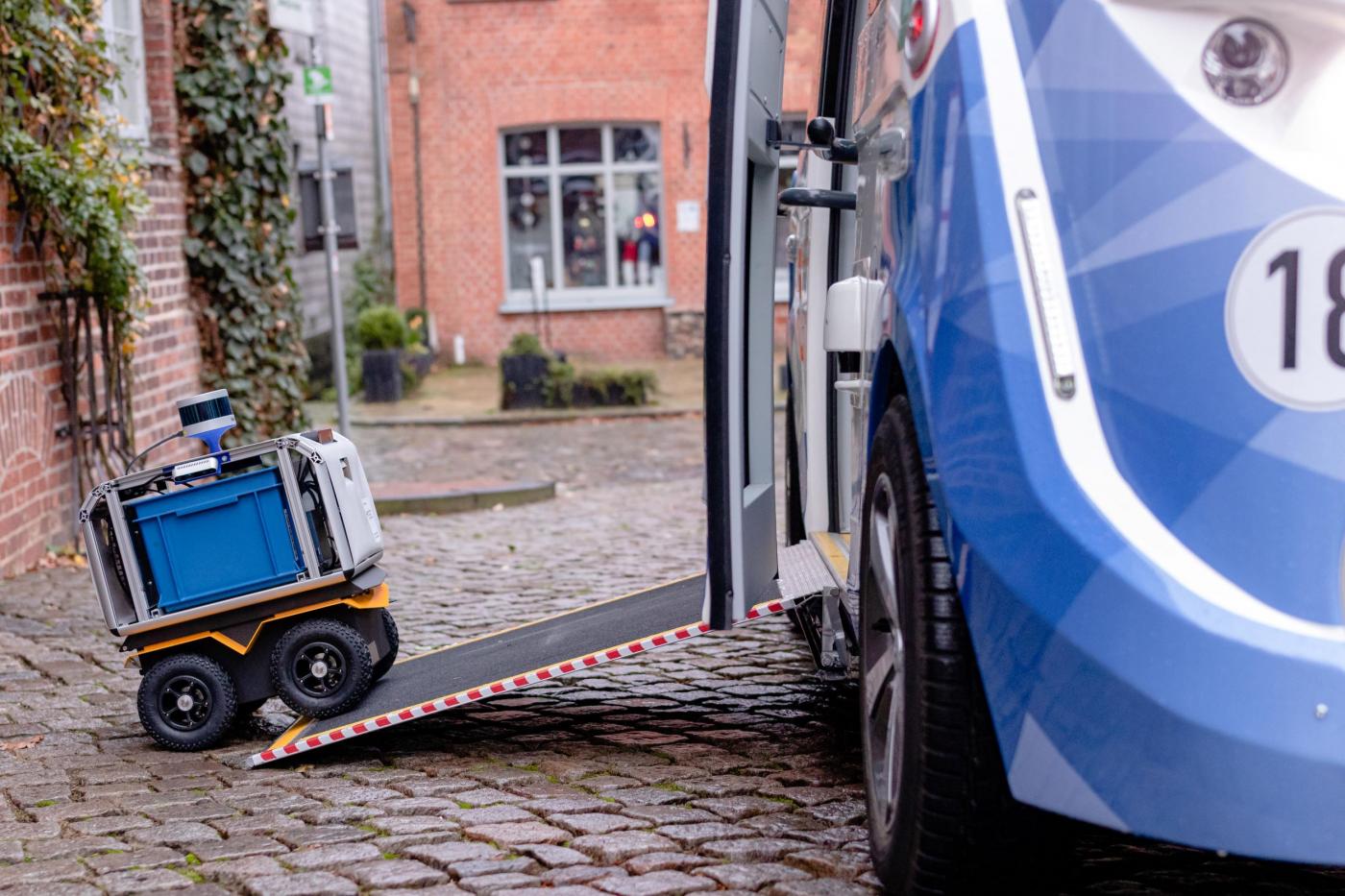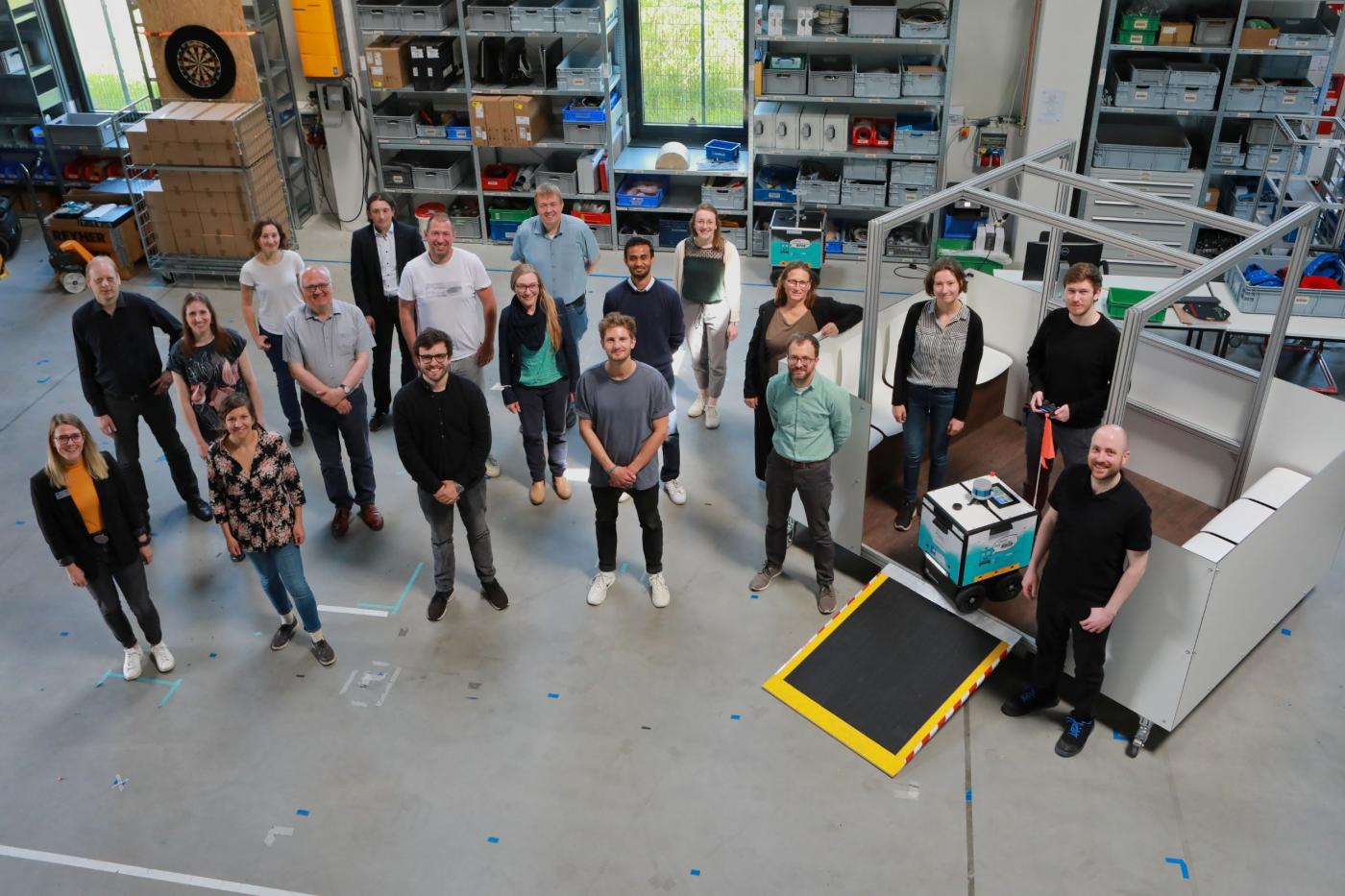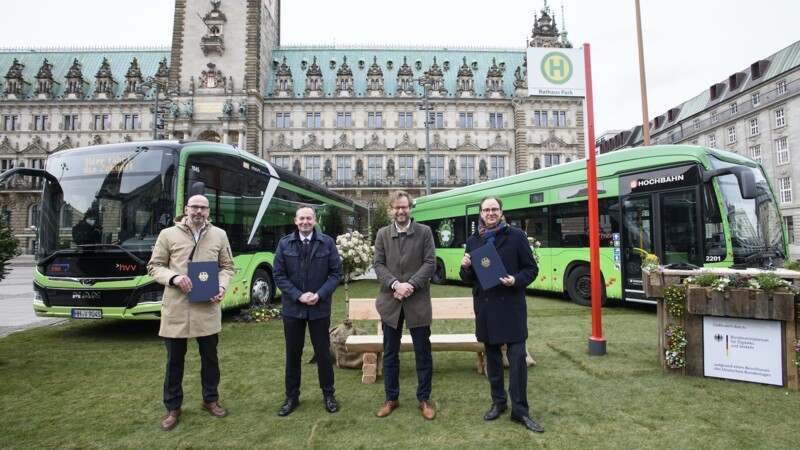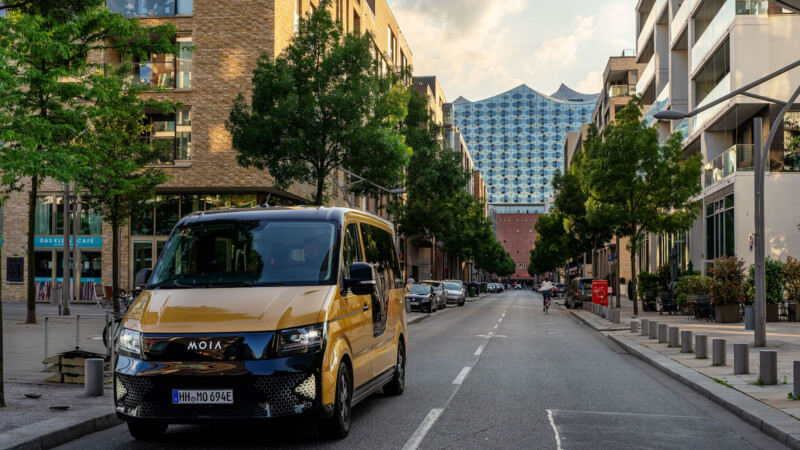Public acceptance is crucial to the widespread use of artificial intelligence (AI) and the success of autonomous driving. The TaBuLa-LOG project studied passengers' reactions to the robot, and modern technology ensured that Laura never went too close to them. Sensors registered the passengers and detected outdoor obstacles. TaBuLa-LOG is among 170 Intelligent Transport Systems (ITS) projects to make Hamburg a model of urban mobility and logistics solutions by 2030. Following its presentation at the ITS World Congress last year, its successor, TaBuLa-LOGplus, is now focusing on the use of AI and kicked off at the TUHH in July.
A driverless electric bus first took to the streets of Lauenburg in the Hamburg Metropolitan Region in summer 2019 as part of the TaBuLa research project (Test Centre for Autonomous Buses in the Duchy of Lauenburg) to make public transport more attractive. A logistics component, developed by the Institute for Technical Logistics at the Technical University of Hamburg, was added after initial results proved encouraging. That led to TaBuLa-LOG and saw the arrival of Laura, a delivery robot capable of transporting both people and goods. These projects are now being followed up by the TaBuLa-LOGplus, which began on April 1, 2022 and lasts until June 30, 2024. This latest project aims to design and test a smart control centre for automated delivery robots and buses in Lauenburg and has received EUR 2.34 in funds from the German Ministry for Digital Affairs and Transport.
Model city for urban mobility and logistics solutions

Driverless shuttles boosting switch to public transport
Now, the researchers are developing AI algorithms to improve decision-making in ambiguous use cases and to clarify the requirements for transporting people and goods. Similar to previous projects, TaBuLa-LOGplus is researching whether and how automated public passenger transport can facilitate the switch from private to public transport. Unlike previous projects, however, the people of Lauenburg will no longer be able to follow the progress of the current project, as most of the solutions are being tested in laboratories and simulations. Yet, during occasional trips on Lauenburg's roads, Laura will be able to react to critical situations in real time thanks to computer vision and AI-based environment recognition.

Autonomous vehicles soon to be everyday
In May, Germany's Federal Council passed an ordinance on autonomous driving that allows tests in everyday road traffic. Until now, autonomous buses were only allowed to drive on special routes and very slowly in test mode. The new ordinance should alleviate the situation. "The fact that driverless vehicles are becoming part of ordinary road traffic in Germany is unique worldwide and an enormous achievement. But precisely this detailed experience at developing the legal framework and putting it into practice enables us to make an important contribution to further international work," said Dr Volker Wissing, Federal Minister of Digital Affairs and Transport.
ys/sb/pb
Sources and further information
TaBuLa-LOGplus
The TaBuLa-LOGplus project is backed by the TU Hamburg, the Institute of Technical Logistics (ITL) and the Institute for Transport Planning and Logistics (VPL), as well as Palaimon GmbH and Interlink GmbH. The Duchy of Lauenburg County, the city of Lauenburg an der Elbe, Yunex Traffic (spin-off from Siemens) and the Kion Group are associated partners.
More
Similar articles

EUR 160 million in German government funds for electro mobility

Flexhafen project examines how to charge e-cars intelligently

